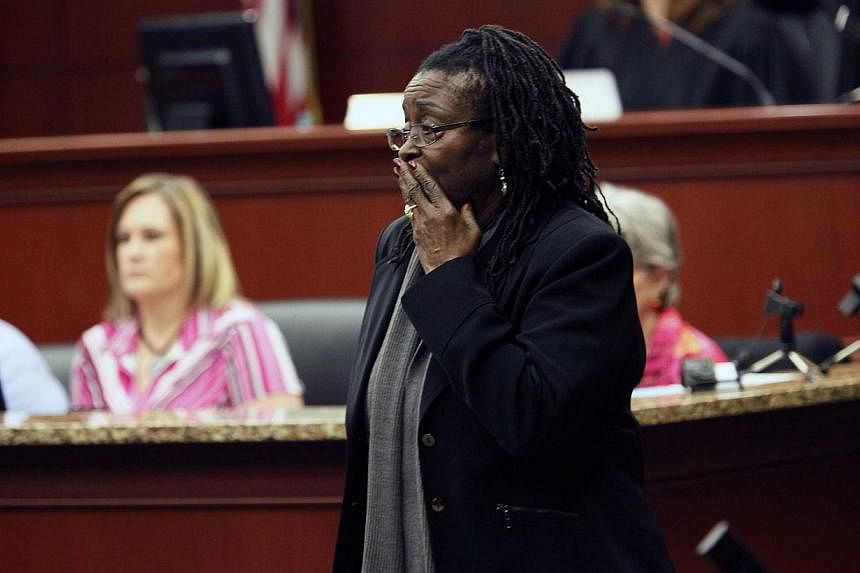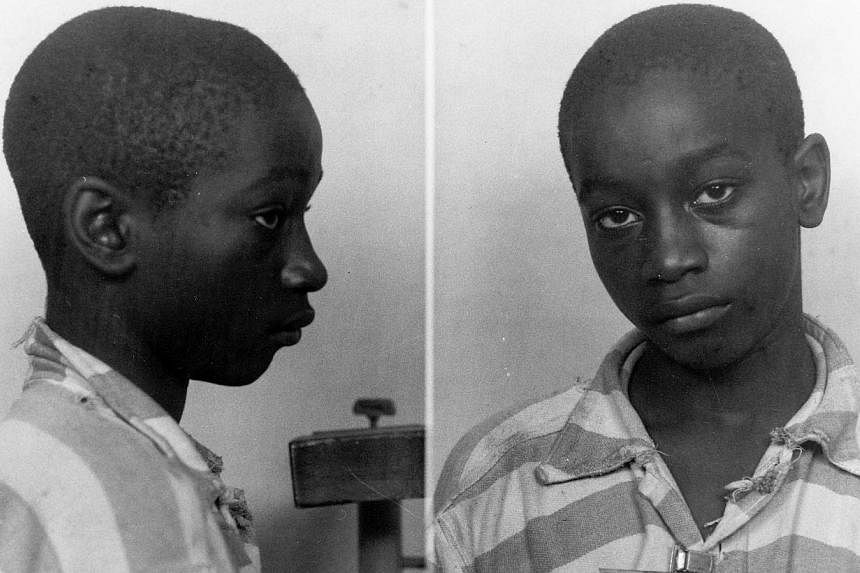WASHINGTON (AFP) - A judge in the southern US state of South Carolina has thrown out the conviction of a black teenager executed 70 years ago for the murder of two white girls.
George Stinney was 14 when he became the youngest person to undergo the death penalty in the United States in the 20th century.
He was so small, weighing 43kg, that he reportedly had to sit on a book in order to fit Old Sparky, the state's electric chair.
In a 29-page ruling on Wednesday, South Carolina circuit court judge Carmen Tevis Mullen said "fundamental, Constitutional violations of due process" existed during George's prosecution.
"I can think of no greater injustice than a violation of one's Constitutional rights which has been proven to me in this case by a preponderance of the evidence," she said.
George was arrested after Betty June Binnicker, 11, and Mary Emma Thames, seven, were found bludgeoned to death in a ditch.
The girls had gone missing while riding their bicycles in the small, segregated lumber mill town of Alcolu.
At his one-day trial, law enforcement claimed the teenager confessed to their murder - although no written confession exists in court records.
LAWYER DID LITTLE
His white defence lawyer summoned few or no witnesses, conducted little if any cross-examination, and sought no change of trial venue.
"It appears he did little to nothing in defending Stinney," Mr Mullen wrote.
An all-white jury convicted George in a matter of minutes, yet his lawyer filed no appeal - a move that would have stayed his execution.
Trial documents don't show whether a murder weapon - said to be a spike or an iron rod - was ever entered into evidence, Mullen noted.
As for George's supposed confession, the judge said the lawmen who grilled him "may have been unduly suggestive, unrestrained and non-compliant with the standards of criminal procedure".
George's family had fled town at the time, fearing retribution in a case that had inflamed local passions and ignited a blaze of publicity.
Stinney's siblings, now in their 70s and 80s, backed by a team of lawyers, campaigned for years for their brother's case to be reviewed.
"I'm just thrilled because it's overdue," his sister Katherine Stinney Robinson, 80, told the Manning Times, which covers the Alcolu area.
But the niece of Betty June Binnicker told the newspaper she disagreed with the outcome.
"We all knew that Betty June was murdered, how she was murdered and who murdered her. We kids grew up with that," Ms Frankie Bailey Dyches said.
"They're upset that he was executed at such a young age," she said, adding: "That's how the law worked then."


